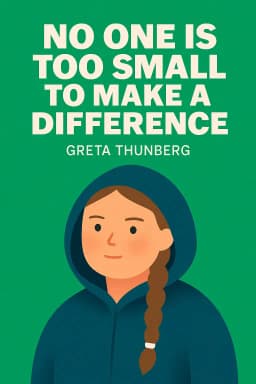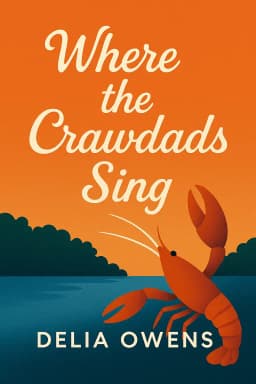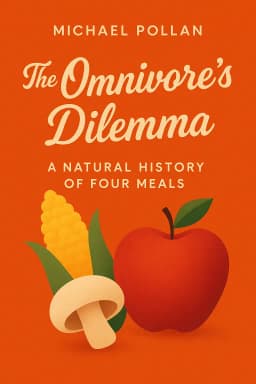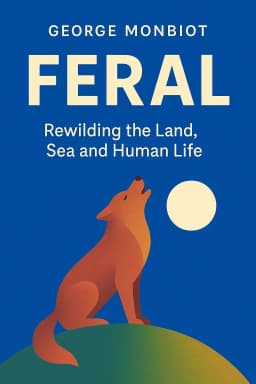
Greta's Fire Alarm
Golden Hook & Introduction
SECTION
Mark: Alright, Michelle. The book is No One Is Too Small to Make a Difference. If you had to roast it in one sentence, what would you say? Michelle: Okay, here goes: "The most inspiring book you'll ever read that's basically the same eleven text messages sent to everyone who has ever worn a suit." Mark: That is brutally accurate. And it perfectly captures the spirit of the book we're diving into today: No One Is Too Small to Make a Difference by Greta Thunberg. Michelle: It really does. Because when you find out how this all started, it’s even more stunning. This isn't a book written by a think tank or a seasoned politician. It's a collection of speeches from a Swedish teenager who, in 2018, began her activism completely alone, sitting outside her country's parliament with a handmade sign. Mark: Exactly. She literally just sat there, every school day, with a sign that said "School Strike for Climate." And from that one solitary act, a global movement was born. The book is the chronicle of that voice as it grew from a whisper outside one building to a roar heard in the halls of the UN and the World Economic Forum. Michelle: That context is everything. It’s not just a collection of speeches; it’s a testament to how a single, focused, and frankly, stubborn voice can cut through all the noise. And her voice is… sharp. Mark: It’s a razor. And that's where we have to start. With the core of her message, which isn't a polite suggestion. It's a fire alarm.
The Moral Clarity of Crisis: 'Our House is on Fire'
SECTION
Mark: She has this one line, delivered to the world’s most powerful people in Davos, that became her global calling card. She looks at this room of billionaires and presidents and says, "I want you to panic. I want you to act as if our house is on fire. Because it is." Michelle: Wow. That is not a metaphor you can ignore. It’s so visceral. It’s not "let's form a committee" or "let's explore solutions." It's "get out, the roof is collapsing." But is 'panic' really the goal? Doesn't panic lead to chaos and bad decisions? Mark: That’s the brilliant, counterintuitive point she makes. She argues that the real chaos, the truly bad decision, is the calm, business-as-usual approach we have now. In one speech, she says, "I don’t want your hope... I want you to feel the fear I feel every day. And then I want you to act." She believes the only rational response to an existential crisis is a sense of overwhelming urgency. The lack of panic is the insanity. Michelle: Huh. So she's not just sounding the alarm, she's trying to make us feel the heat. She wants to create an emotional state that matches the physical reality of the science. Mark: Precisely. And this ties into something she’s very open about, which has been a source of both praise and, unfortunately, cruel mockery. She has Asperger's syndrome, and in the book, she addresses this head-on. She says, "I think in many ways that we autistic are the normal ones and the rest of the people are pretty strange." Michelle: What does she mean by that? Mark: She explains that everyone keeps saying climate change is an existential threat, the most important issue of all. And yet, they just carry on as before. For her, with her different way of processing the world, that contradiction is unbearable. She says, "To me that is black or white. There are no grey areas when it comes to survival. Either we go on as a civilization or we don’t." Michelle: That’s fascinating. She’s reframing what some might see as a social disability into a kind of moral superpower. Her inability to ignore the hypocrisy is what fuels her clarity. The rest of us have learned to live with that cognitive dissonance, but she can't. Mark: She calls it a "gift." It allows her to see the problem without the social and political filters that complicate it for everyone else. When the science says we have a rapidly shrinking carbon budget, her conclusion is simple: "If the emissions have to stop, then we must stop the emissions." It's a logic that is almost childlike in its purity, and that’s what makes it so devastatingly effective. Michelle: It cuts through all the excuses. The arguments about economic feasibility, political capital, quarterly earnings… she just waves it all away and says, "The house is on fire. Are you going to discuss the curtains, or are you going to grab a bucket of water?" Mark: And that’s the challenge she throws down. It’s uncomfortable because it makes us all complicit. Your silence, she says, is "almost worst of all." She argues that if people truly knew how dire the situation is, and how little is actually being done, they wouldn't just agree with her—they'd come and sit down on the pavement beside her. Michelle: I can see how that message would be polarizing. It’s inspiring to many, but for others, it must feel like a personal attack. It removes all the comfortable grey area we like to live in. Mark: It does. There's no room for "I'm doing my part by recycling." She's talking about systemic, emergency-level transformation. And that uncompromising stance is what allows her to pivot from the general plea of "panic!" to a very specific and damning accusation against those in power.
The Burden of Truth: 'You're Acting Like Spoiled Children'
SECTION
Michelle: Feeling the heat is one thing, but she doesn't just point at the fire. She points fingers. That quote where she addresses the European Economic and Social Committee… it’s just brutal. She tells them, "You can’t just sit around waiting for hope to come – you’re acting like spoiled, irresponsible children." Mark: It's an incredible moment. She's a teenager telling a room full of established leaders that they are not mature enough to tell the truth, and that they are leaving the burden to children. It’s a direct accusation of intergenerational theft. Michelle: And she backs it up, right? This isn't just emotional rhetoric. She brings receipts. Mark: She brings so many receipts. This is where the book gets really interesting. In her speech to the UK Parliament, she dismantles their climate success story. The government was proudly claiming a 37% reduction in CO2 emissions since 1990. Michelle: Which sounds pretty good on the surface. Mark: It does. But then she says, hold on. That number is very misleading. It doesn't include emissions from aviation, from shipping, or from imports and exports. It’s creative accounting. She cites research showing that when you include all the things the UK consumes and is responsible for, the real reduction is only around 10%. Michelle: Okay, that is a massive difference. It's like saying you're on a diet but not counting any of the cake you eat outside your house. Mark: Exactly. It's a perfect analogy. And she goes further. She points out that the UK is still actively pursuing new fossil fuel exploitation, like shale gas fracking and expanding oil and gas fields in the North Sea. She lays it all out and then asks, "Is this how you want to be remembered?" It’s a masterclass in using data to expose hypocrisy. Michelle: This really reminds me of that classic concept, the "Tragedy of the Commons." The idea of a shared pasture where every herder knows that adding one more of their own sheep benefits them directly, while the cost of overgrazing is shared by everyone. So, rationally, everyone keeps adding sheep until the pasture collapses and everyone loses. Mark: That is the perfect framework for her entire argument. She sees world leaders as the herders, each maximizing their own short-term political and economic gain, while knowing full well that the collective result is the destruction of the commons—our planet's stable climate. She says, "We are about to sacrifice our civilization for the opportunity of a very small number of people to continue to make enormous amounts of money." Michelle: But this is where the criticism of her comes in, isn't it? The book has been praised for its passion, but some critics say it's anti-capitalist, anti-technology, and lacks pragmatic solutions. When you're calling out entire economic systems and specific countries, you're no longer just a "messenger for the science." You've become a political actor. Mark: And she's very aware of that burden. There's a chapter called "I'm Too Young to Do This," which is actually a post she wrote to address the rumors and hate she was getting. People were claiming she was being manipulated, that there were powerful people "behind" her. Michelle: What was her response? Mark: She lays out the whole story of how the strike was her idea alone. She says, "there is no one ‘behind’ me except for myself." And then she says something heartbreaking: "I am just a messenger, and yet I get all this hate... We children shouldn’t have to do this." She constantly repeats that she is only saying what scientists have been saying for decades. Her core plea is for people to unite behind the science. Michelle: It puts her in an impossible position. To be effective, she has to be more than a messenger—she has to be a compelling, emotional, and political communicator. But the moment she does that, she's criticized for having an agenda beyond just "the facts." Mark: And her agenda, if you can call it that, is what she calls "cathedral thinking." She brings this up after the Notre-Dame Cathedral fire. The world instantly mobilized billions of euros to rebuild it. She says we need that same energy for our civilization. Cathedral thinking is the ability to lay a foundation for something you know you won't see completed in your lifetime. Michelle: That’s a beautiful concept. It’s about building for the future, even when the plans aren't fully clear. Mark: Yes. She says we don't have all the solutions for the climate crisis, but we have to start laying the foundation anyway. We have to act now, based on the best available science, and trust that we will figure out the rest as we go. It’s a call to act in the face of uncertainty, which is the ultimate test of leadership.
Synthesis & Takeaways
SECTION
Mark: When you put it all together, you see how the two core ideas of the book are completely intertwined. Her moral clarity, that "black and white" worldview, is what gives her the authority to deliver such a harsh and uncompromising judgment on the world's leaders. Michelle: Because she refuses to play their game. She won't accept the "grey areas" of political possibility or economic convenience. She stands outside the system and just points to the science and says, "The numbers don't lie. Your promises are empty." Mark: Exactly. Her power comes from that refusal. The book's title, No One Is Too Small to Make a Difference, is often interpreted as an uplifting, individualistic message. And it is. But the deeper meaning, after reading her speeches, is more radical. It’s that even the smallest person can make a difference if they are willing to speak a truth that the powerful have agreed to ignore. Michelle: It really makes you ask yourself, what 'rules' are we all following in our own lives or workplaces that are part of the problem? Where are we accepting a comfortable lie instead of facing an inconvenient truth? This isn't just about climate change, is it? It’s a lesson about courage and integrity. Mark: It's a universal challenge. Her message is a mirror. She's asking us to look at the gap between our stated values and our actual behavior. And she’s telling us that closing that gap is the most important work we can do. Not just for the planet, but for our own humanity. Michelle: It’s a heavy book, but it’s not without hope. The hope isn't in her words, though. It's in the action she inspires. It's in the idea that maybe, just maybe, if enough people start acting like the house is on fire, we can actually put it out. Mark: A powerful thought to end on. We’d love to hear what you, our listeners, think. Does this kind of stark, uncompromising message inspire you to action, or do you think a different approach is needed? Let us know your thoughts on our community channels. Michelle: We're always curious to hear your perspectives. Mark: This is Aibrary, signing off.









